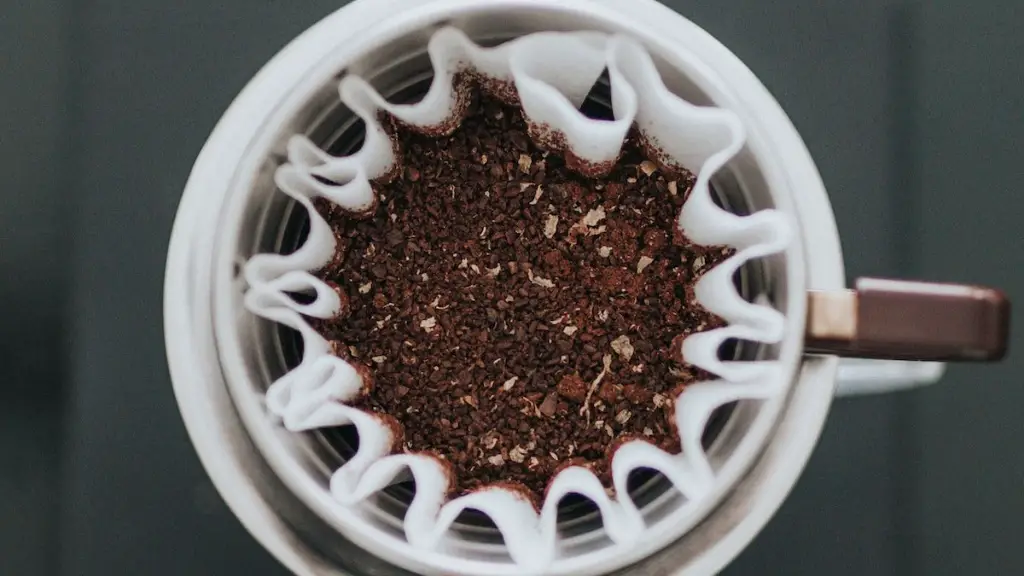Drinking coffee has been long associated with weight loss. It is one of the most popular drinks in the world. Coffee is a natural source of caffeine, which has been shown to boost metabolism and increase energy levels. Additionally, drinking coffee may help suppress appetite, making it easier to stick to a diet plan.
In short, the answer to the question “Does drinking coffee make you lose weight?” is yes. However, it is important to note that this doesn’t mean that simply drinking more coffee will lead to weight loss. Instead, combining a healthy diet and lifestyle with regular coffee consumption can have positive impacts on your overall health and wellness.
Caffeine in Coffee
Coffee is one of the world’s most popular beverages, and it contains a stimulant called caffeine. Caffeine is the most widely consumed psychoactive substance in the world and can be found in coffee beans, tea leaves, yerba mate, guarana berries and other plants. Caffeine content in coffee varies depending on the type of coffee bean and how it is prepared. For example, a cup of brewed Arabica coffee contains between 60-130 mg of caffeine, while a cup of brewed Robusta coffee contains between 100-200 mg. Instant coffee usually has slightly less caffeine than brewed coffee, with between 27-173 mg per cup. Darker roast coffees tend to have less caffeine than lighter roasts. The amount of caffeine you consume from drinking coffee can also depend on other factors such as your size and sensitivity to caffeine.
Impact of Coffee on Weight Loss
Coffee has become a popular beverage choice for many people, and it can also have several health benefits. Studies have shown that coffee can increase metabolism and help the body burn fat. It can also help reduce hunger and cravings, which are key elements of weight loss. In addition, coffee may improve physical performance during exercise, which can lead to improved calorie burning results. Furthermore, coffee may even reduce the risk of certain diseases such as Type 2 diabetes and heart disease.
However, it’s important to remember that too much coffee can be detrimental to your health. It’s best to limit yourself to no more than two or three cups a day. Additionally, watch out for added sugars and creamers that could increase your calorie intake without offering any real nutritional value. When consumed in moderation, though, coffee is an excellent tool for those looking to shed some extra pounds.
In summary, coffee has been shown to have positive effects on weight loss. It can boost metabolism, reduce hunger and cravings, improve physical performance during exercise and even reduce the risk of certain diseases. However, it’s important to consume coffee in moderation – no more than two or three cups a day – so as not to exceed your daily calorie allotment.
Pros and Cons of Drinking Coffee for Weight Loss
Coffee has long been touted as a potential weight loss aid, but does it really work? While some evidence suggests that drinking coffee can boost your metabolism and help you burn fat, its effectiveness is still controversial. Here are some pros and cons to consider when deciding whether to add coffee to your weight loss plan.
Pros: Coffee contains caffeine, which is known to increase thermogenesis (the body’s production of heat) and metabolic rate. This can help you burn more calories throughout the day and may even provide a slight boost in fat burning. Additionally, coffee can reduce appetite, making it easier to adhere to a calorie-restricted diet.
Cons: The effects of caffeine on weight loss are small, so simply drinking coffee won’t necessarily lead to significant weight loss. Additionally, if you drink too much coffee, you may experience jitters or other side effects that can interfere with your daily life. Lastly, many people add sugar or creamers to their coffee which can add empty calories and negate its potential benefits for weight loss.
In summary, when consumed in moderation without added sugars or creamers, coffee may have some minor benefits for weight loss. However, it should not be relied upon as a sole method for achieving your desired results.
Suggested Amounts Of Coffee To Drink For Weight Loss
Coffee can be a great addition to any weight loss plan, as it has been found to increase metabolism and can also help reduce appetite. However, it is important to keep in mind that too much caffeine can have negative effects, such as making you feel jittery and increasing your heart rate. Therefore, it is important to find the right balance of coffee consumption for weight loss.
The amount of coffee you should drink for weight loss depends on your individual needs, as well as how much caffeine tolerance your body has. The American Heart Association recommends limiting caffeine intake to no more than 400mg per day (about four 8-ounce cups of coffee). If you are sensitive to caffeine, try drinking one or two cups of brewed coffee instead of three or four cups. You can also try decaffeinated coffee or specialty beverages like espresso or cappuccino which usually have less caffeine than regular brews.
For those who are not sensitive to caffeine, there is some evidence that drinking up to six 8-ounce cups of coffee per day may be beneficial for weight loss. However, it is important to remember that drinking too much coffee may cause side effects such as headaches and insomnia, so it is best to talk with your doctor before increasing your intake significantly.
To make sure you are getting the most out of your cup of joe for weight loss purposes, try adding some healthy ingredients such as skim milk and cinnamon or nutmeg—both add flavor without adding calories. Also make sure to avoid adding sugar and creamers which can quickly add unnecessary calories.
Overall, while consuming the right amount of coffee can help in achieving weight loss goals, it is important not to overdo it in order to avoid negative side effects. Finding the right balance between health benefits and
Tips for Including Coffee in Your Diet Plan
Coffee can be a great addition to any diet plan. Not only is it a delicious and energizing beverage, but it can also have numerous health benefits when consumed in moderation. Here are some tips for incorporating coffee into your diet plan:
First, choose the right kind of coffee. Look for organic, fair-trade, and shade-grown varieties to ensure that you’re getting the most health benefits. You can also look for specialty coffees with added flavorings or additions like cinnamon or ginger.
Second, pay attention to your caffeine intake. Too much caffeine can have adverse effects on your health, so try not to consume more than 400 milligrams per day. You may want to consider switching to decaf coffee if you find yourself drinking too much regular coffee.
Third, drink your coffee black or with a splash of milk instead of adding lots of sugar and creamer. This will help reduce your calorie intake and ensure that you’re getting the most out of the beverage itself.
Finally, enjoy your coffee! Don’t feel guilty about indulging in a cup each day – just be sure to stick to the tips above so that you’re making healthy choices when it comes to incorporating this popular beverage into your diet plan. Adding coffee into your daily routine can be a great way to get energized and stay healthy.
Does Drinking Coffee Alone Help You Lose Weight?
Drinking coffee alone does not necessarily help you lose weight. However, it can be part of a healthier lifestyle that includes a balanced diet and regular exercise that can lead to weight loss. Coffee can help boost your metabolism, which means it can increase the number of calories your body burns. This can potentially help with weight loss, but it is not enough on its own. Additionally, adding sugar or cream to your coffee can add calories and extra fat, so it’s important to be mindful of what goes into your coffee if you’re trying to lose weight.
Coffee can also suppress appetite and give you energy to get through workouts, which is important for weight loss. However, drinking too much caffeine can have adverse effects on your health and wellbeing. It’s best to limit your intake of caffeinated beverages to no more than four cups per day and make sure you’re getting enough water throughout the day as well.
To Sum it All Up
Although drinking coffee can increase your metabolism and help you burn more calories, it is not a reliable weight loss technique due to the various factors involved. Coffee does not directly lead to weight loss; it could instead have an opposite effect. Healthy eating habits and regular exercise are the best ways to lose weight. It is important to remember that drinking coffee should be done in moderation.





